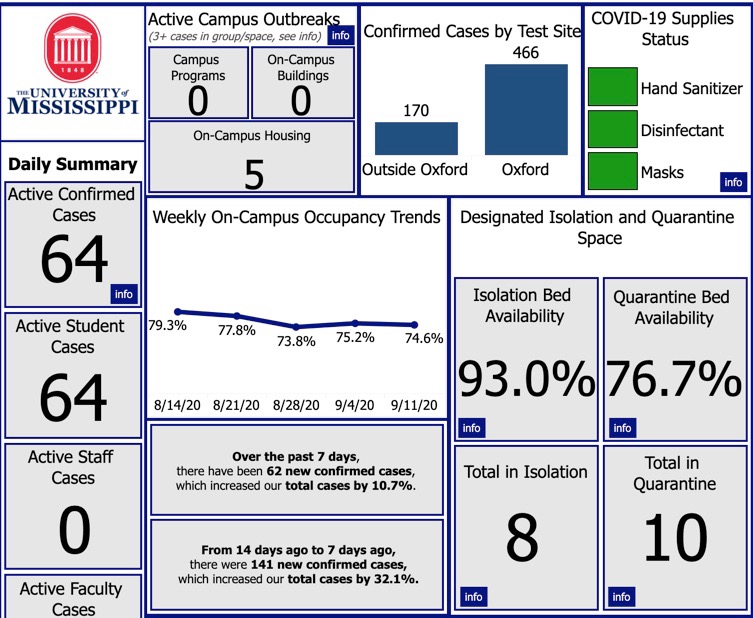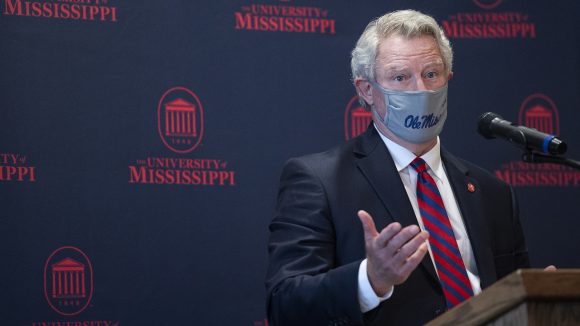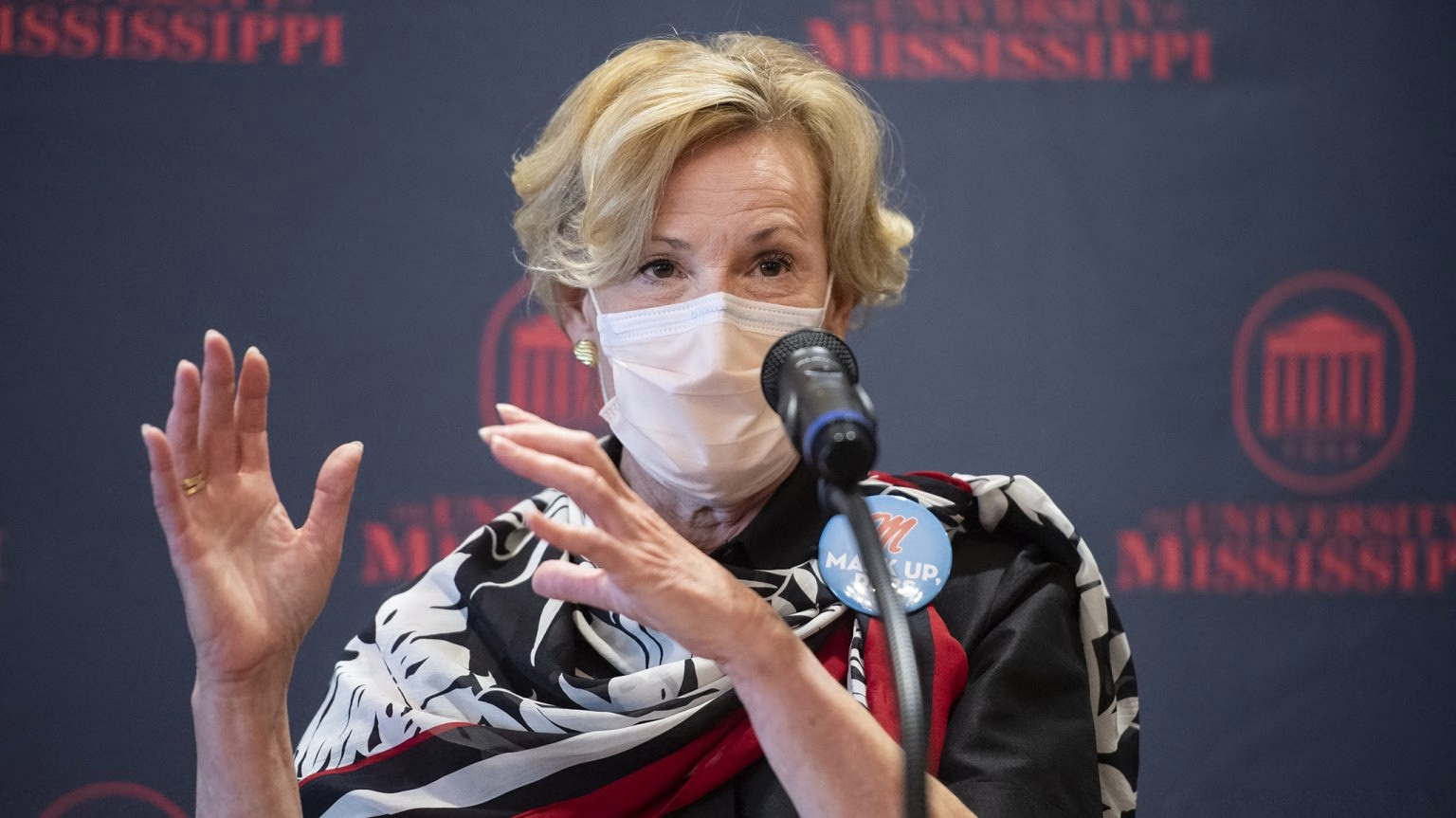
By Victoria Hosey
Editor-in-Chief
tori.hosey@hottytoddy.com
Dr. Deborah Birx, the coronavirus response coordinator for the White House Coronavirus Task Force, participated in a roundtable discussion over the weekend with leadership from the University of Mississippi, state and local officials and healthcare professionals.
Although some reports have recently stated that Oxford currently ranks No. 3 in the country for new cases of COVID-19 (based on cases relative to population size), Birx made highly positive remarks during her visit on Saturday concerning the city of Oxford and the University’s efforts to mitigate the spread of the virus.
“It’s clear that this university has put the health of the students first and the health of the community first, and I just wanted to thank the administration and their leadership for their amazing work here on campus,” Birx said. “We want to push them to find more asymptomatic spread, but they’re finding cases, they’re quarantining, they’re isolating, and most importantly, they’re caring for the students.”
Birx also said that she does not want the metrics of new cases per 100,000 people in small metro areas with large student populations to cause universities to change their semester plans.
“One thousand cases in a town of 60,000 looks very different than 1,000 cases in a town of 1.5 million,” Birx said. “The potential for spread is equal, but it looks much higher.”
There have been 636 cases at Ole Miss since August. New cases of COVID-19 have shown a downward trend at the University of Mississippi over the last several days. On Monday, the school reported 64 new cases in the last seven days, a downtick from the first week of September, which reported 167 new cases. There are 64 active cases on campus as of Monday, which is also a drop in comparison to Sept. 7 when the number of active cases was 315.

According to Birx, the most effective way for the University to prevent the spread of the virus going forward to is implement “surveillance testing” by testing wastewater or by incentivizing students to get tested for the virus voluntarily.
“That really requires a partnership with the students, because obviously it has to be voluntary,” Birx said. “They have the capacity. It’s just that not all the students volunteered. So we’re really going to get that message out, that testing is a path forward to staying healthy.”
Birx stressed that contact tracing for people between the ages of 18 and 22 is important in order for scientists to learn more about the asymptomatic spread of COVID-19.
“Universities are more likely to have spread,” Birx said. “So they can really help figuring out for us what are really high-risk behaviors with contact tracing that really lead to potential infection.”
Provost Noel Wilkin commented on the University’s contact tracing efforts, stating that results show that the virus is primarily being spread off-campus.
“Instead, it is more likely taking place in social activities or engagements or in other spaces where people are interacting with each other, taking their mask off with their guard down, something of that nature,” Wilkin said.
Wilkin estimated that somewhere between 300 to 400 students have been quarantined since the University began implementing quarantine measures. The University’s COVID-19 dashboard currently lists five active outbreaks in student housing. No official numbers of students quarantining off-campus have been released.
UM Chancellor Glenn Boyce said on Saturday that while the University must continue to implement new knowledge in order to stop the spread of the virus, it must also remain flexible.
“Our students have got to maintain their progress toward their degrees. We cannot slow down their education processes,” Boyce said. “We have to keep working, and we have to keep offering the high-quality education that this university is known for.”

Birx stated that she is pleased with the handling of COVID-19 throughout the South .
“What Mississippi has been able to do just over the last four to five weeks shows us that if we change our behavior, if we wear our masks, if we social distance … there is a pathway forward that maintains retail open, maintains universities and maintains schools open,” Birx said.
Boyce expressed his gratitude for the insight offered by Birx over the weekend.
“And I’d like to tell you that she had some outstanding guidance about surveillance testing, and how we can ramp that testing up to a greater level, and what that would mean in order for us to understand the impact on our university and how we can stop the spread,” said Boyce.
“She’s a trusted national leader in his fight against this pandemic, and we’re grateful for her leadership and her interest in our pandemic efforts.”

